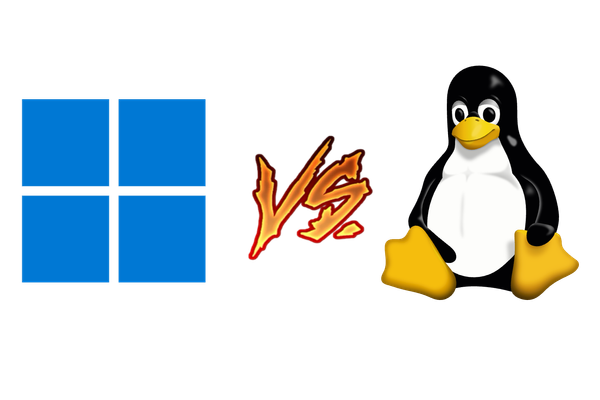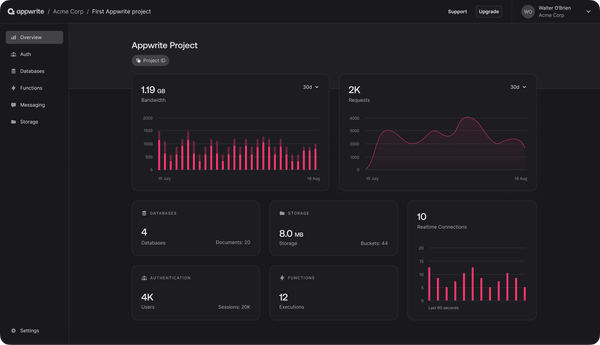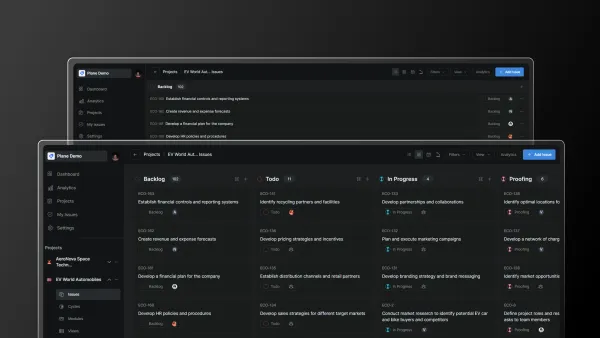Staying Private When the Government Doesn't Want You To Be

The government has always tried to extract every last drop of information from you. However, Given the Trump administration's extensive track record of shrugging off privacy concerns and trampling civil liberties, it's safe to say the next 4 years will likely see digital freedoms squeezed way harder than ever before.
In this edition, we're exploring practical strategies to keep your digital footprint secure from prying eyes. Whether you're a journalist safeguarding sensitive info, a political dissident keeping Big Brother at bay, or just someone who values privacy, I've got some tips to help you out.
For the Love of God, Get a Mac
It's 2025, yet the only reliable consumer-grade computer with encryption by default is a Mac. Additionally, modern macOS devices have a tight security coupling between the hardware and software components. In fact, every year Apple publishes a comprehensive Platform Security Report detailing everything that keeps your system safe. By investing in a Mac, you're ensuring that nobody can access the sensitive documents and data on your computer without having the password. Macs also come with added benefits from the Apple ecosystem, such as using Find My to locate a lost laptop, advanced biometric security features, and a lot more.
Signal
Over the years, Signal has proven itself as the most secure, privacy-preserving messaging app on the market. It's open-source and has been independently audited by security researchers many, many times. It's also just a great all-around experience with modern message/calling features, nice mobile apps and a desktop app too.
Additionally, Signal has advanced proxying features to circumvent censorship in countries where Signal would otherwise be blocked. This can become really useful when traveling abroad.
Brave
Brave is an open-source web browser with many baked-in privacy features (and arguably a larger set of core features too). It's built on the Chromium engine that powers Google Chrome, meaning any site that works on Chrome will work on Brave. However, they de-Google the Chromium instance to remove tracking and telemetry.
Brave includes an ad blocker by default which blocks ads on all kinds of sites, from intrusive article ads to in-video YouTube ads. They also have their own search engine with an independent search index if you're interested in replacing Google completely.
You can read their official privacy statements here.
Dangerzone
PDF files are the most common documents on the internet. However, a PDF can be specially crafted to execute code just by being opened by a reader like Acrobat or Preview. Dangerzone converts an untrusted PDF into a safe format that can be opened without the risk of a virus infecting your system. It does this by scanning the unsafe PDF in a container and creating a new PDF with images of the scan instead of the source PDF data. Optionally, it can OCR the output PDF to bring back the ability to select and find text.
This is especially useful for journalists who are regularly sent documents from anonymous sources. As Micah Lee (creator of Dangerzone) puts it:
Imagine if you were a journalist and got an email from someone claiming to work for the Trump Organization with "Donald Trump tax returns.pdf" attached. Are you really going to reply saying, "Sorry, I don't open attachments" and leave it at that?
Proton
Proton VPN is currently the only VPN service I can safely recommend. They've passed extensive independent audits for everything from their zero-access encryption to their log policies. I personally use it when connecting to the internet from airports or coffee shops, where a Man-in-the-middle attack is more likely to occur.
They also have a complete suite of products and I recommend all of them if you care about complete online privacy. They have Proton Mail for email, Proton Drive for storing files, and Proton Pass as a password manager. Since Proton is a Swiss company, your data is held under much more strict standards of scrutiny than it would be in the United States or even Europe.
Quick heads-up: We're a Proton affiliate, so we earn a commission if you buy through our links above. Doesn't affect our recommendation; we actually use Proton Suite ourselves.
Documenso
When signing & sending important documents, Documenso is the best open-source alternative to something like DocuSign. If you're doing any work with contracts or NDAs, give it a try.
AFFiNE
No, that's not a typo. AFFiNE is... I don't really know what it is. It's like notes and docs and whiteboards all mashed together. It's trying to be one of those "do-it-all" workspace things, except AFFiNE really does do it all. It also does it really well and can be self-hosted if you need that extra data privacy.
Open WebUI (and Ollama)
AI is undoubtedly making massive strides in becoming a daily-use tool. However, do you really trust OpenAI and Google with your prompts? I'm not saying that you should use ChatGPT as a therapist, but you're most likely putting in a lot of personal information into these AI tools without proper protections. That's where Open WebUI becomes useful. In conjunction with Ollama, you can download and run AI models locally.
Note that this is the most technical setup out of all of these. If it's too much, you're probably fine just disabling the data sharing settings in ChatGPT. But for the paranoid, this works much better.
Privacy.sexy
Yeah, the name sounds like something you'd clear from your browser history, but Privacy.sexy is actually a great tool for locking down your computer. It's an open-source platform that lets you quickly tweak your OS and browser settings to maximize privacy and security. Whether you're on Windows, macOS (which you should be), or Linux, Privacy.sexy provides scripts to disable telemetry, block trackers, and shut down unnecessary background services that leak your data.
Final Thoughts
Remember, you don't have to be some elite journalist to care about privacy. Your privacy is important and someone out there wants your data.
"Arguing that you don't care about privacy because you have nothing to hide is no different than saying you don't care about free speech because you have nothing to say." - Edward Snowden



